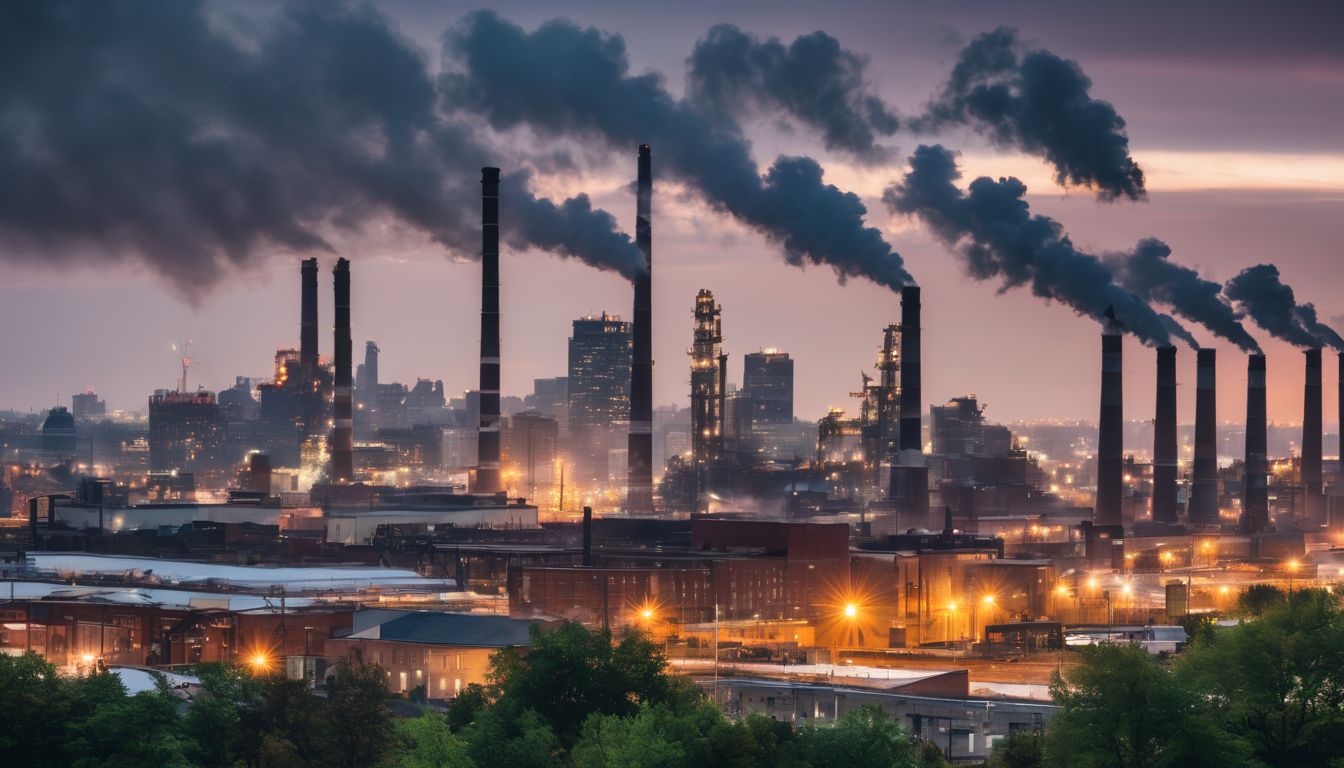It is widely understood that global warming is happening. As defined, global warming is the increase in average temperature of the Earth’s surface air and ocean temperatures, and in the last century that temperature has increased by 1.4 ± .32 °F.1 Scientists predict that the rate will increase in the future, with an additional rise of 2.5 to 10.4 °F by 2100. The Earth has a natural cycle of warming and cooling, as seen during the Ice Age, but what exactly is causing the Earth to warm so quickly?
Many would argue that an abundance of greenhouse gases in our atmosphere due to human activity is consequently trapping more heat in our atmosphere. Others would argue that our Earth is going through a natural warming cycle and the rise in temperature is due to natural causes. However, most scientists would agree that global warming is a result of excess greenhouse gas concentrations in the atmosphere like water vapor, carbon dioxide (CO2), methane and ozone. Although these gases can be attributed to human activity, they can also be released into our atmosphere by natural causes. Some of the arguments for global warming resulting from natural causes include:
- The natural climate cycle of the Earth. The Earth goes through natural climate cycles, sometimes lasting up to 40,000 years. More recently, the global temperatures were relatively unchanged from 1880 to 1910, according to the U.S. Environmental Protection Agency. They rose till about 1945, cooled until about 1975 and have risen steadily to present day.2 Therefore, it is believed our Earth is experiencing a normal warming cycle.
- Volcanic eruptions. Volcanoes can influence climate change is a few different ways. Some would argue that volcanic aerosols provide a catalyst for ozone depletion. Another factor is that when volcanic eruptions occur, they release carbon dioxide- a gas that is directly linked to global warming. Volcanoes also emit sulfur that combines with water vapor in the stratosphere to form dense clouds of tiny sulfuric acid droplets. These droplets take several years to settle out and they are capable to decreasing the troposphere temperatures because they absorb solar radiation and scatter it back to space.3
- Sun spots. Sunspots are magnetic disturbances that appear as cooler, dark patches on the sun’s surface. The number of spots cycles over time, reaching a peak every 11 years.4 Therefore, sunspots can alter the amount of energy Earth gets from the sun.
- Water Vapor. It is one of the most abundant greenhouse gases and increasing water vapor leads to warmer temperatures, which causes more water vapor to be absorbed into the air. Warming and water absorption increase in a spiraling cycle. Water vapor feedback can also increase the warming effect of other greenhouse gases.
- The Earth’s rotation. As the Earth spins, it does not achieve perfect rotation. It actually wobbles slightly, thus alternately exposing the northern and southern latitudes to more and less solar radiation. This wobble in the Earth’s rotation has been causing changes in the temperature of the atmosphere for many millions of years.5
Aside from natural causes, global warming has been said to be caused by human activity like industrial processes, power stations, transportation fuels and pollution, agricultural byproducts, waste disposal and treatment, deforestation, etc. Regardless of whether it is caused by nature or human activity, scientists on both sides of the debate are working to explore the cause and effects of global warming. The effects could be devastating for planet Earth. Polar ice caps will continue melting causing rising sea levels, more endangered species, and an unbalanced ecosystem. An unbalanced ecosystem could have major economic consequences for agriculture and cause more droughts, heat waves, warmer waters, and more hurricanes. Again, these changes could be devastating for the future of our planet. We cannot control the natural cycle of the Earth, but we can control our impact on it. Even if human activity is not the direct cause of global warming, we still have a responsibility to take care of our planet.




